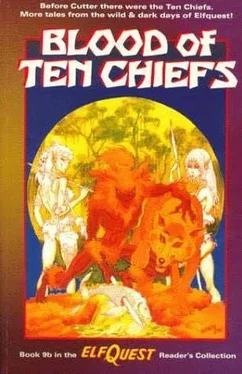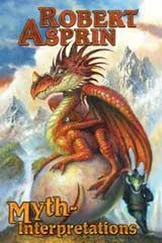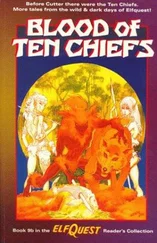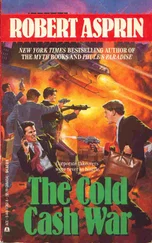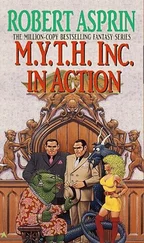Robert Asprin - The Blood of Ten Chiefs
Здесь есть возможность читать онлайн «Robert Asprin - The Blood of Ten Chiefs» весь текст электронной книги совершенно бесплатно (целиком полную версию без сокращений). В некоторых случаях можно слушать аудио, скачать через торрент в формате fb2 и присутствует краткое содержание. Жанр: Фантастика и фэнтези, на английском языке. Описание произведения, (предисловие) а так же отзывы посетителей доступны на портале библиотеки ЛибКат.
- Название:The Blood of Ten Chiefs
- Автор:
- Жанр:
- Год:неизвестен
- ISBN:нет данных
- Рейтинг книги:3 / 5. Голосов: 1
-
Избранное:Добавить в избранное
- Отзывы:
-
Ваша оценка:
- 60
- 1
- 2
- 3
- 4
- 5
The Blood of Ten Chiefs: краткое содержание, описание и аннотация
Предлагаем к чтению аннотацию, описание, краткое содержание или предисловие (зависит от того, что написал сам автор книги «The Blood of Ten Chiefs»). Если вы не нашли необходимую информацию о книге — напишите в комментариях, мы постараемся отыскать её.
The Blood of Ten Chiefs — читать онлайн бесплатно полную книгу (весь текст) целиком
Ниже представлен текст книги, разбитый по страницам. Система сохранения места последней прочитанной страницы, позволяет с удобством читать онлайн бесплатно книгу «The Blood of Ten Chiefs», без необходимости каждый раз заново искать на чём Вы остановились. Поставьте закладку, и сможете в любой момент перейти на страницу, на которой закончили чтение.
Интервал:
Закладка:
Except that this time, and for the first time, death bothered Timmorn.
At the encampment, those who were left behind cared as little for time as did Timmorn or the wolf. They did not think of themselves as the "high ones"; that was a name that the others-the wolf-changed ones like Timmorn and his offspring-were starting to call them. If they were anything in their own minds, they were the firstcomers, the exiles. They felt not at all like a tribe. Loss was their kin.
In their minds the accident was still fresh, the betrayal that had thrown them broken and confused to this world, even though it had happened many cycles ago. Because they had learned in their own world, before the tragedy, to do without time, to live outside of time if they wished, memories lived within them eternally. And they tried in this new, harsh place to recreate the gentle timelessness they remembered.
They were doomed, many of them. The world was relentless, and time crowded in upon them, ate at them, made them aware of its uncaring flow. Their bellies complained with hunger, for the physical molds in which they had cast their bodies needed to eat. They shivered and cramped with cold, for their slender and pale forms were suited for a milder, kinder life. As much as they wished it not to be so, life was no longer timeless, but was lived from meal to meal, from fire to windblown fire. Mind and thought could no longer easily exist in that carefree slice of experience that centered between moments-ago and moments-hence. Talking between
minds became sluggish and difficult here, and so the firstcomers must string one spoken word after another. Knowledge of other souls became murky; the exiles gave each other and took sounds that were names.
"Seilein?" The voice was soft, by nature and from tiredness. "Seilein, the fire is going."
The speaker was very tall, very slender. He was a firstcomer, and he wore about him a skin that ill-concealed the tattering remnants of otherworldly clothing. His name was Renn; he had so far survived this primitive world, and if he did not die of starvation, disease, violence, cold, heat or other fatal discomfort, he might live forever. But now the fire was guttering inside his windbreak-shelter and he did not know how-he did not want to know how-to keep it alight. He watched dully as the fire keeper brought dried twigs and stirred the wood to bring forth a bit more heat.
"Renn," Seilein said with gentle disapproval, "it's not all that difficult." As she spoke, she removed the fur-lined cap she'd been wearing out in the flurrying snow; she also took off her laboriously stitched gloves and extended her hands toward the fire. The air around her hands shimmered and the flames bloomed for a moment before settling back.
"All you need to do," she went on, "is to place new wood on the coals now and then. I still have a little of the power to start fires, but it's not always necessary." She knew as she spoke that her words were near to useless. Some of the elves, like herself, had managed over time to shake off the lethargy they all had felt in the beginning. She and those who were like her did not simply want barren survival; they wanted to go forward-in any direction. But the others, the ones like Renn-there was a part of them that had not landed on this world, that was trapped somewhere in a gray place. The others, Seilein suspected, would never learn to tend fires, or to be even a little comfortable in the few skins that were able to be magically cured, or learn the stirring of
pleasure to be found in the touching of bodies, or to eat the food brought by the barely-skilled hunters and the strange wolf allies…
Food. Even Seilein, who among the firstcomers was most determined to fit herself to this world and its time flow, still must catch herself up out of the timeless thought she was so used to. Food. It was dark, and Timmorn, grudgingly, had told the camp that he would bring back food before it was dark.
Seilein knew things about Timmorn that few if any of the others knew, for she had made up her mind to study him. She found him intriguing, and there were the stirrings of other feelings. She knew that he ran with the wolves but did not seem totally at ease with them-or perhaps it was the wolves who had not quite accepted him. She knew that although the wolves chose the dark for their hunts, the elves preferred to move about during the day. Getting Timmorn to appreciate the difference, and then his getting the wolf-pack to compromise its habits, had been the work of many cycles-no, she corrected herself, time here is measured by the turning of the seasons. And that too was new, for the world she'd come from had not seen seasons in eons.
She heard voices muttering in the gloom that was the encampment, musical voices saying harsh, sad things. By now everyone knew that something was not right, that Timmorn, and more importantly the food, was late. Pulling her gloves and cap back on, Seilein went out of the shelter to check the campfires and to overhear and perhaps partake of the conversations she knew she'd find.
"He's forgotten us again. He's too much his mother's shape, not enough of her mind. We can do as well as he can." That would be Valloa, Seilein thought to herself with a faint smile. One who fancied herself a huntress, with her crude spear. To be fair, Valloa was no worse than any of those who tried to supplement the irregular supply of freshkilled meat brought by Timmorn; by skill or by luck, she had speared her share of small game. And Seilein knew that as many elves as could must learn to hunt, for even when the wolves brought down a big buck or boar, they did not always let Timmorn take a portion back to the camp. But still, she was amused at Valloa's intolerance.
A male voice answered; it was Marrek, who had turned his skills to the making of useful things from the earth and clay of this place. "I still wonder what it was that Timmain thought when she changed. She said that it was for us, for our survival-I even remember the question she asked before she shifted. 'Might it not be better to be wolf?' I still wonder what she meant, but I can't imagine how she intended her son to aid us when he seems out of place with us and with the beasts he follows."
"We just don't know him well enough," Seilein said, joining the small group. "There's reason there; there must be. Even though Timmain's gone, her plan must live on in her son."
"You know it's not easy talking to him," said Valloa, "shy and nervous as he is."
Seilein lowered her eyes and spoke softly. "I'll know him. Somehow."
Valloa humphed, and at that moment a commotion erupted in the farther shelters as Timmorn, snarling and biting at the air, loped into the camp. He paced to and fro, his agitation loud, before coming to a kind of rest by one of the fires. Almost immediately tall figures flowed from tents and weatherbreaks.
"What has he brought?"
"He's late."
"I don't see anything."
"It's been too long. The hunger…" And the voice trailed off into a low, sad song of times gone.
"He's failed. Why do we harbor him?"
"Because he's still our best hope," Seilein snapped, surprised at her own reaction to the stream of complaints. She knew that there was disappointment, keenly felt, and she knew that Timmorn bore the brunt of it. She could not really blame them for that, but she did resent that they had stopped trying to live. "Besides," she went on, "there's something different-not right-here."
At this, a few of the elves made expressions of surprise or curiosity; the others muttered and turned away, saddened or disgusted, back to the shelters. Seilein moved closer to Timmorn and felt a thrill of-something like excitement as she touched his shoulder. "Tell us," she urged.
Timmorn stared at her for a long moment, his yellow eyes, disturbing and deep, locked with hers. She wondered how he could not feel what she felt. Again, she floated on a ripple, rode a stirring inside her as Timmorn began to relate the events of the hunt, the kill, the maddened snow beast. So lost was she in the new sensation she experienced, which mingled like a strange, dark herb with the guttural sound of Timmorn's voice, that she nearly missed the rise in his tension as he told of the death of the wolf.
Читать дальшеИнтервал:
Закладка:
Похожие книги на «The Blood of Ten Chiefs»
Представляем Вашему вниманию похожие книги на «The Blood of Ten Chiefs» списком для выбора. Мы отобрали схожую по названию и смыслу литературу в надежде предоставить читателям больше вариантов отыскать новые, интересные, ещё непрочитанные произведения.
Обсуждение, отзывы о книге «The Blood of Ten Chiefs» и просто собственные мнения читателей. Оставьте ваши комментарии, напишите, что Вы думаете о произведении, его смысле или главных героях. Укажите что конкретно понравилось, а что нет, и почему Вы так считаете.
